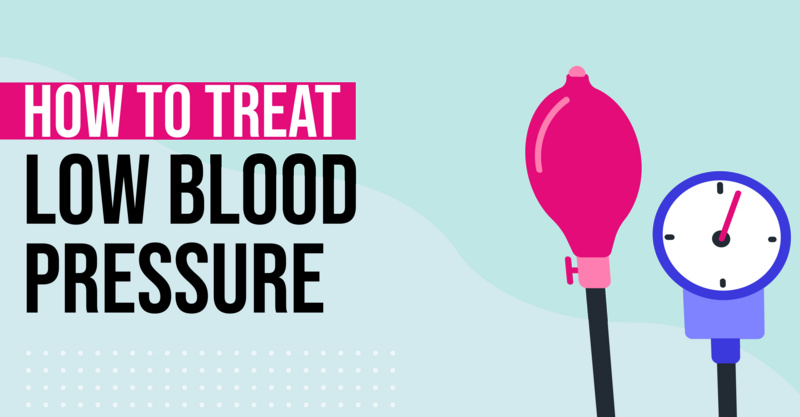Key Points
- Semaglutide, initially a type 2 diabetes medication, is now recognized for its weight loss properties, although results may vary due to several factors.
- Factors affecting semaglutide's effectiveness include incorrect dosage, weight loss plateaus, poor sleep and diet, inadequate exercise, other medical conditions, and other medications.
- Despite varying weight loss results, semaglutide can still offer substantial health benefits such as improved metabolic health and healthier eating habits.
- To maximize weight loss, individuals should maintain a balanced lifestyle and regular communication with their healthcare provider.
- SolvHealth can help individuals connect with healthcare providers specializing in medical weight loss for personalized treatment plans.
Semaglutide, a medication originally developed for the treatment of type 2 diabetes, has gained significant attention for its effectiveness in promoting weight loss. This weight loss medication is marketed under several names, including Ozempic and Wegovy. Many individuals have turned to this treatment in hopes of achieving their weight loss goals, yet some may find themselves frustrated when the expected results do not materialize. Understanding the various factors that can influence the effectiveness of semaglutide is crucial for those navigating their weight loss journey through diet and exercise.
In this article, we will explore the potential reasons why weight loss on semaglutide may not be as successful as anticipated. From individual metabolic differences to lifestyle factors and adherence to the prescribed regimen, several elements can impact the medication's efficacy. By delving into these aspects, we aim to provide insights and strategies that can help optimize the weight loss experience for those using semaglutide.
7 Reasons Why You Are Not Losing Weight on Semaglutide
While semaglutide can be a powerful tool for weight loss, there are several reasons why some individuals may not see the desired results when it comes to achieving their ideal body weight. Understanding these factors is essential for making informed adjustments to your treatment plan and lifestyle changes. Below are some common reasons that could contribute to a lack of weight loss while on semaglutide, as noted by Chicago Arthritis and Regenerative Medicine:
-
Wrong Dosage: Taking an incorrect dosage may hinder weight loss efforts. It's important to work closely with your healthcare provider to find the optimal dose for your needs.
-
You've Hit a Plateau: Weight loss can often slow down or stall after initial progress, leading to a frustrating plateau. This is a normal part of the weight loss journey and may require adjustments in diet, lifestyle changes, or activity levels.
-
Lack of Sleep: Insufficient sleep can negatively impact metabolism and hunger hormones, making it harder to lose weight, even when on medication.
-
Dietary Choices: Consuming high-calorie or unhealthy foods can counteract the effects of semaglutide. A balanced diet is crucial for maximizing weight loss.
-
Inadequate Physical Activity: A sedentary lifestyle can limit weight loss potential. Incorporating regular exercise is essential for achieving and maintaining weight loss.
-
Underlying Medical Conditions: Certain health issues, such as hormonal imbalances or metabolic disorders, can affect weight loss efforts and should be addressed with a healthcare professional.
-
Medications Interference: Other medications you may be taking could potentially interfere with semaglutide's effectiveness, impacting your weight loss journey.
By identifying and addressing these factors, individuals can better navigate their weight loss journey while using semaglutide.
How Long Does It Take to Lose Weight on Semaglutide?
When considering semaglutide as a weight loss treatment, many individuals are eager to understand the timeline for seeing results, according to the NLM. They note that the speed and extent of weight loss can vary significantly from person to person, influenced by factors such as initial weight, adherence to the treatment plan, dietary habits, and physical activity levels. Understanding the typical timeline can help set realistic expectations and encourage individuals to stay committed to their weight loss journey.
Clinical studies have shown that individuals using semaglutide can experience noticeable weight loss within the first few weeks of treatment. Many participants report an average weight loss of around 5-10% of their initial body weight within the first three months. However, optimal results are often observed over a longer duration, with continued weight loss occurring over six months to a year. It’s important to note that while some may experience rapid changes, others may lose weight more gradually. Consistency in following the prescribed dosage, maintaining a balanced diet, and engaging in regular physical activity are key components that can enhance the effectiveness of semaglutide and contribute to sustained weight loss over time.
Is It Normal Not to Lose Weight on Semaglutide?
As individuals embark on their weight loss journey with semaglutide, it's not uncommon for some to experience less weight loss than anticipated, according to the NLM. This can lead to feelings of frustration or disappointment, especially when expectations are set based on the experiences of others. However, it’s essential to recognize that weight loss is a highly individualized process, influenced by various factors including genetics, metabolism, and lifestyle choices.
While some people may not lose as much weight on GLP-1 medications like semaglutide, they can still experience significant health benefits. Research indicates that even modest weight loss can lead to improvements in metabolic health, such as better blood sugar control, reduced blood pressure, and lower cholesterol levels. Additionally, semaglutide can help curb appetite and promote healthier eating habits, which can further contribute to overall well-being. Therefore, it’s important to focus not only on the scale but also on the positive health changes that may accompany the use of this medication, reinforcing the idea that every individual's journey is unique and valuable in its own right.
Tips to Maximize Weight Loss with Semaglutide
Maximizing weight loss while using semaglutide involves a combination of medication adherence and lifestyle adjustments, according to Chicago Arthritis and Regenerative Medicine. They explain that while semaglutide can significantly aid in weight management, incorporating healthy habits can enhance its effectiveness and lead to more sustainable results. By making conscious choices in your daily routine, you can create an environment that supports your weight loss goals. Here are some practical tips to help you get the most out of your semaglutide treatment:
-
Avoid Alcohol: Alcohol can add empty calories to your diet and may interfere with the effectiveness of semaglutide, so limiting or avoiding it can support your weight loss efforts.
-
Be Patient: Weight loss is often a gradual process, and it's important to set realistic expectations. Give your body time to adjust to the medication and recognize that progress may vary.
-
Exercise Regularly: Incorporating physical activity into your routine not only boosts calorie expenditure but also enhances overall health. Aim for a mix of cardiovascular and strength training exercises.
-
Follow a Balanced Diet: Focus on a nutrient-dense diet rich in fruits, vegetables, lean proteins, and whole grains to support weight loss and overall health.
-
Stay Hydrated: Drinking plenty of water can help control hunger and improve metabolic processes, making it easier to stick to your weight loss plan.
-
Monitor Your Progress: Keeping track of your food intake, exercise, and weight can help you stay accountable and make necessary adjustments along the way.
-
Communicate with Your Healthcare Provider: Regular check-ins with your healthcare provider can help address any challenges you face and ensure that your treatment plan remains effective.
By implementing these tips, you can create a supportive environment for weight loss while using semaglutides or other weight loss medications, enhancing your chances of achieving your ideal body weight and health goals.
Medical Weight Loss Near Me
If you're looking to embark on a medical weight loss journey, SolvHealth is an excellent resource to help you find the right support near you. With a user-friendly platform, SolvHealth connects you to healthcare providers specializing in medical weight loss, making it easier to access personalized treatment plans tailored to your needs. Don’t hesitate to take the next step towards achieving your weight loss goals—explore SolvHealth today to find trusted professionals in your area who can guide you on your path to better health.
Frequently asked questions
What is semaglutide originally used for?
Semaglutide was originally developed as a medication for type 2 diabetes.
What factors can affect the weight loss benefits of semaglutide?
Factors can include incorrect dosage, hitting a weight loss plateau, lack of sleep, poor dietary choices, inadequate physical activity, underlying medical conditions, and interference from other medications.
Will semaglutide still benefit me if I don't lose as much weight as expected?
Yes, even if weight loss is not as much as anticipated, semaglutide can still offer significant health benefits like improved metabolic health and healthier eating habits.
How can I maximize my weight loss while using semaglutide?
You can maximize weight loss by avoiding alcohol, exercising regularly, following a balanced diet, staying hydrated, monitoring your progress, and maintaining regular communication with your healthcare provider.
What is SolvHealth's role in weight loss with semaglutide?
SolvHealth can connect individuals to healthcare providers specializing in medical weight loss, helping them to create personalized treatment plans.
How soon can I expect to see weight loss results with semaglutide?
Clinical studies show that individuals can notice weight loss within the first few weeks of treatment, with optimal results observed over six months to a year.
Can other medications interfere with semaglutide's weight loss benefits?
Yes, other medications can potentially interfere with semaglutide's effectiveness in promoting weight loss.
Can lack of sleep affect the weight loss benefits of semaglutide?
Yes, lack of sleep can be one of the factors that affect the weight loss benefits of semaglutide.


 LinkedIn
LinkedIn











